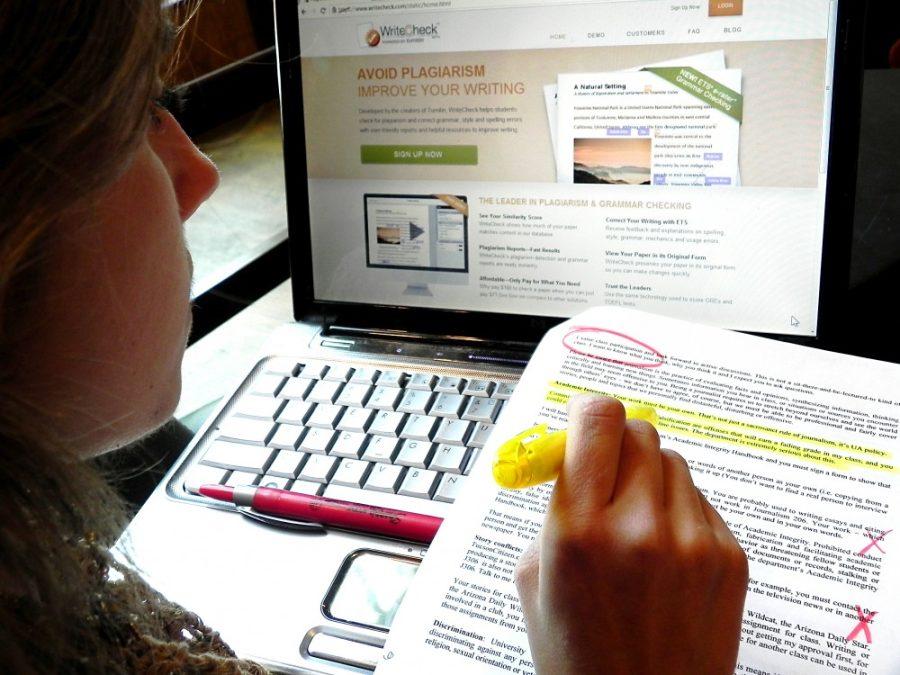A website allowing students to check their work for plagiarism aims to help them avoid accidental violations — but it could enable others to cheat.
WriteCheck.com, run by the same company as Turnitin.com, is marketed as a plagiarism detection tool for students. The service checks essays and papers for plagiarism as well as grammar, style and spelling errors.
Users create an account and can check one paper for about $7. Results from WriteCheck highlight the material found in the turnitin.com database. Users can tweak their papers and resubmit them up to three times.
WriteCheck advertises its ability to prevent students from being caught for accidental plagiarism. However, the site raises the concern of whether it can be used to enable undetectable cheating by allowing students to check which sources are caught in the Turnitin database.
The service goes against the spirit of the Code of Academic Integrity if used to doctor essays until plagiarism passes through Turnitin unnoticed, said Owen Davis, a professor of geology who uses Turnitin in his natural science general education course.
“It may not violate the letter of the law,” Davis said. “But it certainly bypasses the spirit of the exercise.”
Professor use of Turnitin has grown since the service came to campus nearly a decade a go, said Wayne Brent, senior consultant for emerging technology for the Office of Instruction and Assessment.
Usage grew especially quickly last year after the service was integrated into D2L, Brent said. Brent offers administrative support to professors using Turnitin.
“They can use it more quickly and transparently,” he said.
Nearly half of professors in the College of Science use Turnitin for research papers and lab reports, said Tom Fleming, an associate astronomer in the Department of Astronomy who coordinates Turnitin for the College of Science. Fleming said he catches about three incidents of plagiarism each semester in his courses.
Most students plagiarize due to time constraints or because they thought they could get away with it, Fleming said. Cases of accidental plagiarism should be addressed in how students are taught to read, digest and rewrite information, he said.
“The student should know whether they wrote it or not,” he said.
Those who are caught plagiarizing fail the course, Fleming said. He said he opted not to enable the Turnitin feature allowing students to see the plagiarism report.
“Then you’re allowing students to gain access to the system if they want to cheat,” Fleming said.
Anastasia Freyermuth, a junior studying gender and women studies and film and television studies, said she thinks most students know if they are plagiarizing.
“It’s something I’ve worried about because some teachers are more lenient with paraphrasing than others,” Freyermuth said. “But I really feel that oftentimes, you know (if you’ve plagiarized).”
Freyermuth said WriteCheck could be used to perpetuate cheating but does show awareness.
“At least they’re making a bare, minimum effort not to plagiarize,” Freyermuth said.
Freyermuth said she would not use the service and prefers to visit professors in their office hours.
WriteCheck could help students who accidentally quote sources a little too closely, said Alethea Bare, a visual communication junior. She said the service could be helpful for many students.
“But I don’t know about paying $7 for it,” she said.
The service could enable cheating but the $7 fee acts as a financial penalty, Fleming said.
“Now they’re paying,” he said. “Why not just sit down and write the paper yourself?”









